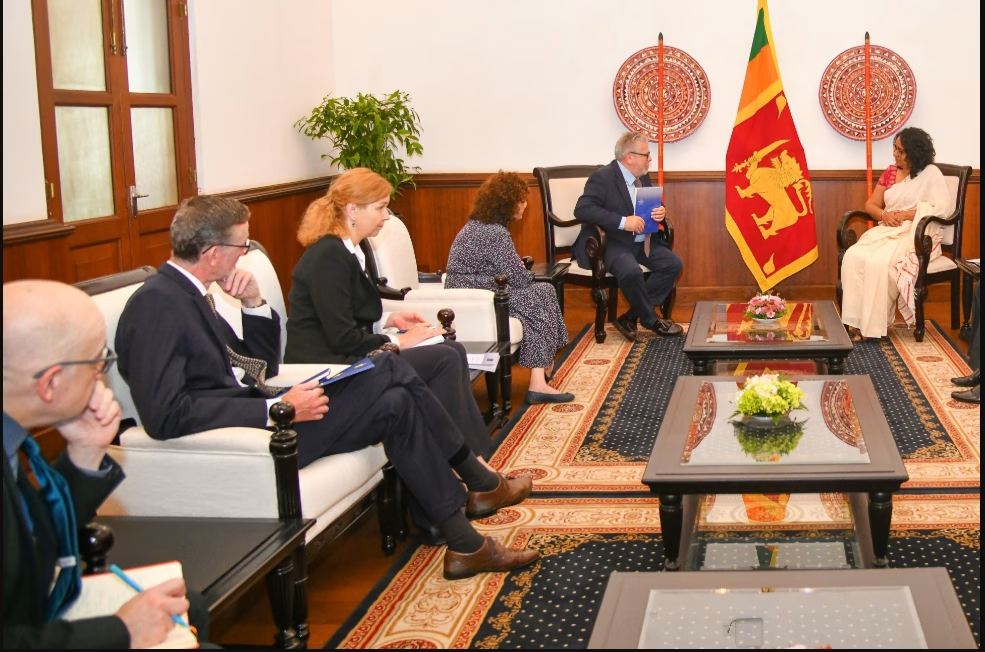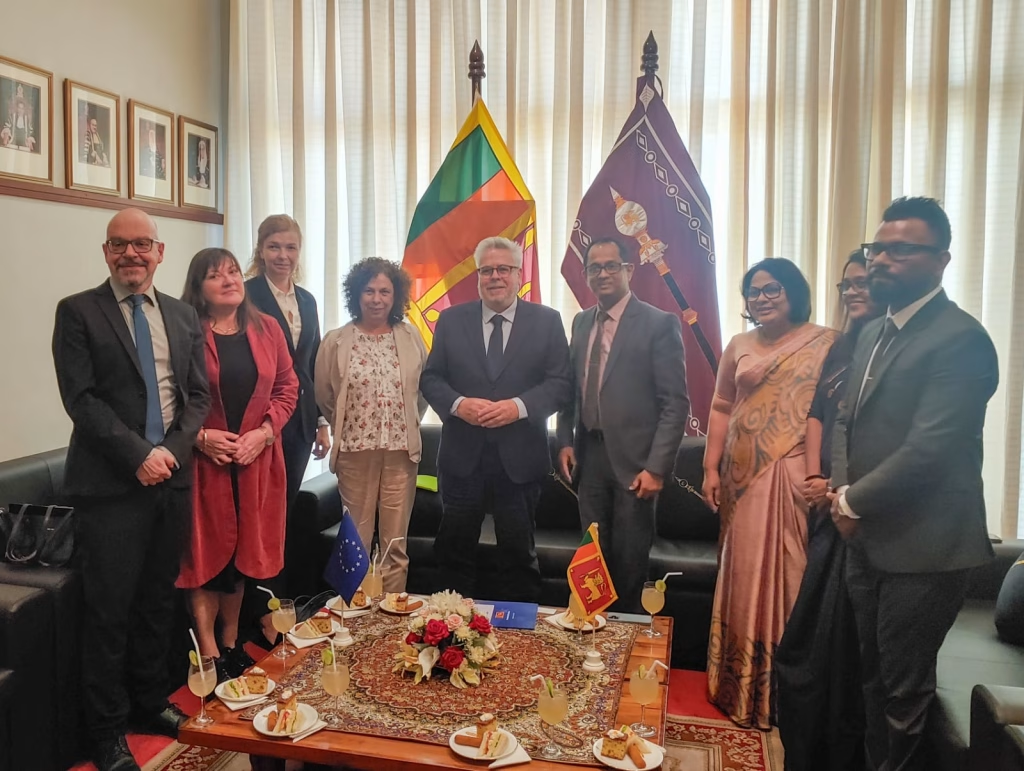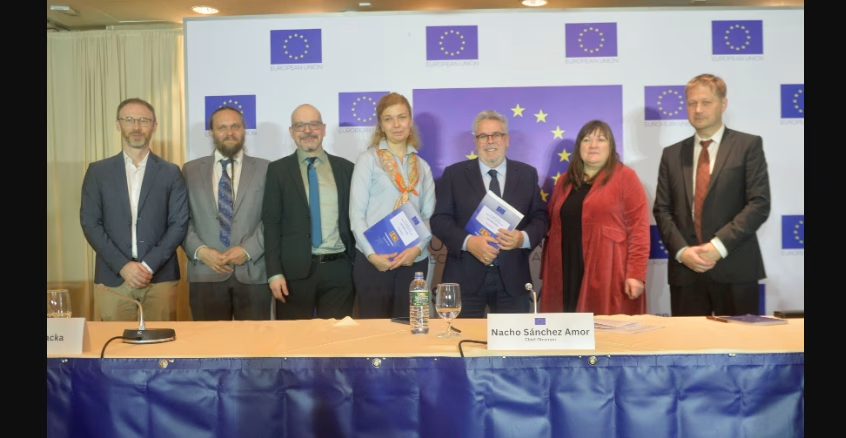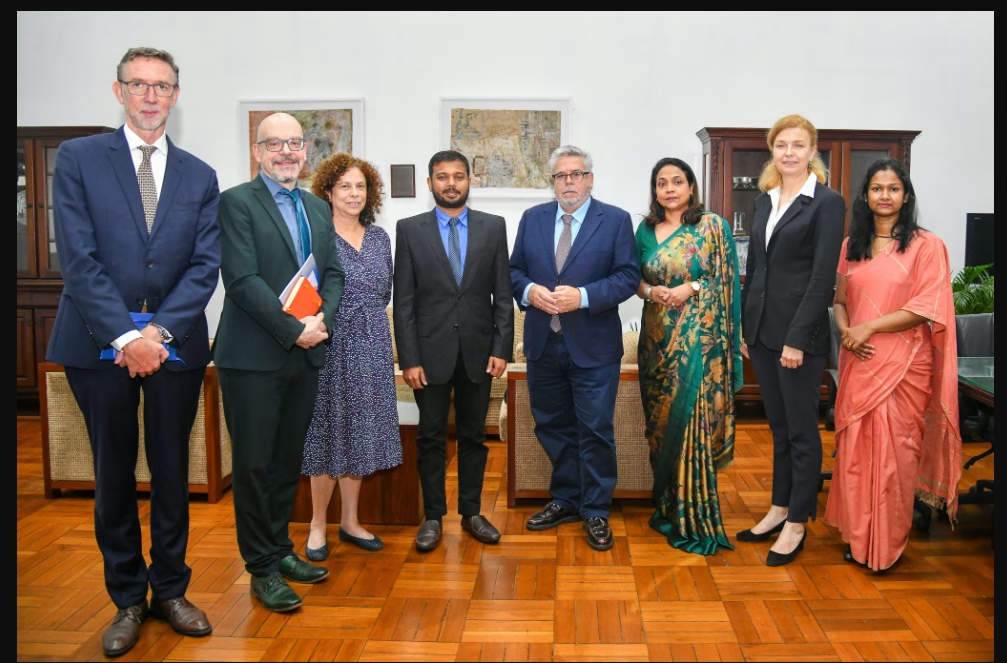EU Election Observers Publish Final Report on Sri Lanka’s 2024 Presidential Election
The European Union Election Observation Mission (EU EOM) has released its final report on Sri Lanka’s 2024 presidential election, conducted on September 21. The report highlights key findings from its two-month observation across the country, offering 16 recommendations to strengthen future electoral processes while commending the resilience of Sri Lanka’s democratic institutions and citizen participation.
The European Union Election Observation Mission (EU EOM) to Sri Lanka today published its Final Report on the 2024 presidential election, held on 21 September. The report is based on a two-month-long, country-wide observation and presents a detailed analysis and assessment of the entire electoral process. As part of this report, the mission offers 16 recommendations aimed at strengthening and refining future electoral processes, in line with Sri Lanka’s international commitments to democratic elections.
Chief Observer Nacho Sánchez Amor, Member of the European Parliament, stated: “The 2024 presidential election marked a significant milestone in Sri Lanka’s democratic journey and a renewal of political normalcy after a period of unprecedented turmoil. Citizens demonstrated their commitment to the democratic process, while the Election Commission of Sri Lanka (ECSL) worked independently and with resolve, ensuring transparency at all key electoral stages. A peaceful election day and the swift acceptance of results by candidates underscored the strength of Sri Lanka’s democratic institutions.”
The mission noted several positive developments, including significant reforms aimed at enhancing transparency and accountability in campaign finance, and greater inclusion of youth in the voter lists. Overall, the mission concluded that the electoral legal framework is well developed and the collaborative engagement of the ECSL and civil society made a positive contribution to the election. Fundamental freedoms were respected throughout the campaign and voters had genuine political alternatives to choose from.
Chief Observer Nacho Sánchez Amor added: “The presidential election attested to the resilience of Sri Lanka’s democracy. Now, after the parliamentary elections, we hope that the President and the new government will implement further reforms aiming at strengthening transparency, inclusiveness and rule of law. The European Union stands ready to support Sri Lanka on this path, in accordance with existing cooperation.”
The EU EOM Final Report recommends meaningful advancement of the participation of women in politics, and strengthening of enforcement mechanisms against the misuse of state resources. The mission notes that the progressive reform of campaign finance would benefit from further fine-tuning. The EU EOM Final report also calls for the protection of freedom of expression by repealing restrictive legislation, including the Online Safety Act and the Prevention of Terrorism Act, as well as further emphasising the need to improve accessibility for voters with disabilities. “Democracy thrives through transparency, inclusiveness and free expression,” concluded the Chief Observer.
The EU EOM was deployed at the invitation of Sri Lanka’s Election Commission and the Government of Sri Lanka and was present in in the country from 14 August to 10 October 2024. It deployed over 70 international observers across all nine provinces.
Recommendations
- Adopt special measures to promote the equal participation of women in public and political life. These measures could include requiring political parties to nominate a minimum of 30 percent women for national, provincial, and local elections. Waiving deposits for women contesting elections could also be considered as a temporary measure to encourage women’s participation in politics.
2. Strengthen the independence of the Election Commission of Sri Lanka (ECSL) by revising the selection process for its members. This process should be transparent, competitive, and involve public debate to ensure the appointment of independent individuals.
3. Expand special voting arrangements to ensure all eligible voters can exercise their right to vote. This includes extending postal voting to voters unable to attend polling stations on election day and introducing mobile ballot boxes for persons with disabilities.
4. Develop voter education programs, led by the ECSL and district election offices in collaboration with civil society organizations, to provide information on electoral systems, voter registration, voter identification, special voting arrangements, and ballot marking. Materials should target different groups of voters and be available in various formats.
Establish uniform campaign silence rules for all candidates across traditional, online, and social media platforms. These rules should include clear and enforceable penalties for non-compliance.
Enforce legal restrictions on the misuse of state resources and incumbency during campaigns to ensure a level playing field for all candidates.
Amend the Regulation of Election Expenditure Act, 2023, to expand the ECSL’s authority. This includes verifying financial reports submitted by candidates in collaboration with other institutions. Additionally, introduce mandatory reporting requirements for media outlets and online platforms on advertising prices and revenue, with standardized, digitalized reporting by candidates.
Enhance transparency in political finance by requiring candidates to disclose campaign donations exceeding a specified limit before election day.
Transform state media into genuine public service outlets by establishing legal safeguards for their editorial independence, financial sustainability, and autonomy. Appoint management through an open and competitive process.
Amend the Right to Information (RTI) Act to mandate the proactive disclosure of public interest information, including ECSL media monitoring results and warning letters sent to media outlets. This information should be made available promptly and in an accessible format.
Strengthen formal collaboration between the election administration and major social media platforms (Meta, Google, TikTok, and X). ECSL, civil society organizations, and tech companies should develop effective mechanisms to enhance transparency in online campaigning and enforce campaign rules, including respecting the campaign silence period.
Protect freedom of political expression by repealing restrictive laws such as the Online Safety Act, the Prevention of Terrorism Act, and Section 3 of the ICCPR Act.
Introduce provisions for election observation into the electoral legal framework to ensure effective monitoring of the electoral process.
Incorporate the Convention on the Rights of Persons with Disabilities (CRPD) into national law to ensure full legal recognition of the rights of persons with disabilities. Build on established good practices by implementing measures that enable persons with disabilities to vote independently.
Revise instructions to presiding officers at polling stations to ensure voting booths are positioned to maintain ballot secrecy.
Ensure transparency during the vote count by establishing minimum criteria for selecting counting premises, including requirements for adequate space and accessibility.




